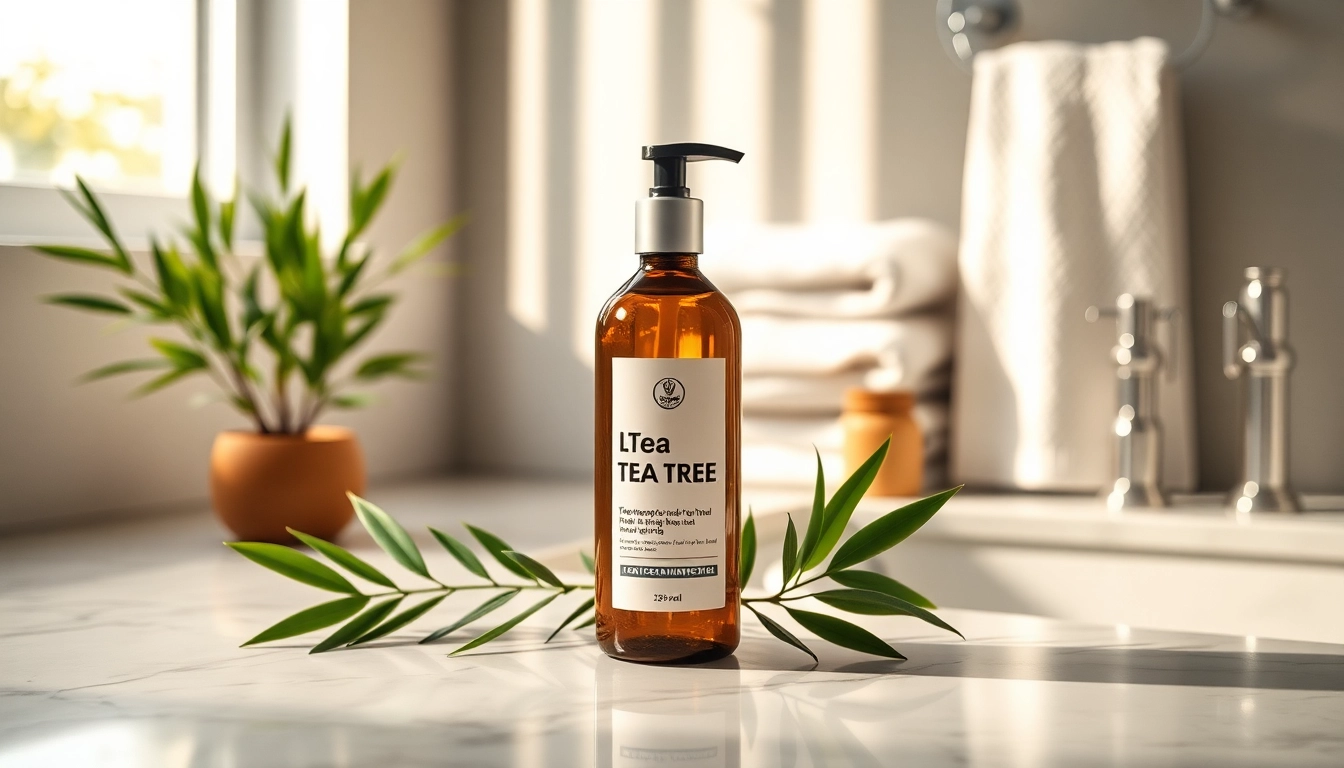Understanding the Benefits of Shampoo with Tea Tree Oil
When it comes to hair care, choosing the right products can make a noticeable difference in the health and appearance of your hair. One particularly powerful ingredient that has garnered attention in recent years is tea tree oil. Found in various hair care products, shampoo with tea tree oil offers a unique blend of benefits that cater to several hair and scalp issues. Let’s explore what tea tree oil is, its effects on hair health, and how it can work for different hair types.
What is Tea Tree Oil?
Tea tree oil is a natural essential oil extracted from the leaves of the Melaleuca alternifolia tree, native to Australia. It has been used for centuries for its numerous healing properties. Given its natural antiseptic and anti-inflammatory characteristics, tea tree oil has made a name for itself, not just in skincare but in hair care as well. Its unique composition includes terpenes that provide antimicrobial benefits, making it an ideal option for maintaining scalp health.
Key Advantages for Hair Health
Tea tree oil offers several advantages that can significantly improve hair health. Here are some key benefits:
- Scalp Health: Tea tree oil helps maintain a clean and healthy scalp by combating dandruff and dryness. Its antifungal properties reduce the presence of dandruff-causing fungi, ensuring a flake-free scalp.
- Reduces Itching: The soothing properties of tea tree oil make it effective in alleviating scalp irritation and itching, a common issue for many with sensitive scalps or conditions such as eczema or psoriasis.
- Promotes Hair Growth: By improving blood circulation to the scalp, tea tree oil may stimulate hair follicles, encouraging new hair growth and preventing hair loss.
- Natural Cleanser: With its antibacterial qualities, tea tree oil helps cleanse the scalp from excess oil and buildup, leaving hair feeling fresh and clean.
How It Works on Different Hair Types
Tea tree oil is versatile and can benefit various hair types:
- Oily Hair: For those with oily hair, tea tree oil’s ability to reduce excess sebum production can help maintain balance and reduce greasiness.
- Dry or Curly Hair: While tea tree oil can be beneficial for oily hair, individuals with dry or curly hair can also find benefits. A light blend of tea tree oil with a moisturizing conditioner can provide hydration without weighing hair down.
- Color-treated Hair: Incorporating tea tree oil can help maintain scalp cleanliness and reduce the risk of irritation from chemical treatments, thus helping to preserve color vibrancy.
Choosing the Right Shampoo with Tea Tree Oil for Your Needs
Not all shampoos featuring tea tree oil are created equally. Knowing what to look for can help you select the right product for your specific needs.
Identifying Your Hair Concerns
Before selecting a shampoo, it’s essential to identify your specific hair concerns. Do you struggle with dandruff, itchy scalp, excessive oiliness, or dry hair? Understanding your scalp and hair condition will help narrow down which products will work best for you.
Ingredients to Look For Alongside Tea Tree Oil
Combining tea tree oil with other beneficial ingredients can enhance its effectiveness. Consider looking for:
- Argan Oil: This nourishing oil hydrates and softens hair, making it an excellent addition for those with dry hair.
- Aloe Vera: Known for its soothing properties, aloe vera can complement tea tree oil well by reducing inflammation and irritation.
- Vitamin E: A powerful antioxidant, Vitamin E helps promote a healthy scalp and boosts hair growth.
Comparing Options: What to Consider
When comparing different tea tree oil shampoos, consider the following:
- Formulation: Choose a sulfate-free formula to avoid stripping hair of its natural oils.
- Concentration: Check the concentration of tea tree oil in the shampoo. A higher concentration can yield better results, especially for scalp treatment.
- User Reviews: Look at consumer reviews to see how the product has worked for others with similar hair types and concerns.
How to Incorporate Tea Tree Oil Shampoo into Your Routine
Integrating a new shampoo into your hair care routine can take some adjustment. Follow these steps to maximize its benefits:
Step-by-Step Application Guide
Using tea tree oil shampoo effectively includes the following steps:
- Wet Your Hair: Begin by thoroughly wetting your hair with warm water. This opens up the hair cuticles, allowing for better product absorption.
- Apply Shampoo: Take a sufficient amount of shampoo and apply it to your scalp. Gently massage it in using your fingertips, ensuring you’re targeting the roots.
- Leave In: Allow the shampoo to sit for a few minutes to enable the tea tree oil to work its magic.
- Rinse Thoroughly: Rinse your hair thoroughly with warm water, ensuring that all product is removed.
- Follow Up with Conditioner: Always follow with a conditioner to lock in moisture and prevent dryness.
Frequency and Best Practices
For optimal results, consider the following regarding frequency:
- Frequency of Use: Depending on your hair type and concerns, using shampoo with tea tree oil 2-3 times a week may be ideal. Those with oily scalps could use it more frequently.
- Patch Test: Always perform a patch test before fully incorporating the shampoo, especially if you have sensitive skin.
Complementary Products for Optimal Results
To elevate your hair care routine, consider pairing tea tree oil shampoo with:
- Tea Tree Oil Conditioner: For continued benefits and nourishment.
- Hair Masks: Hydrating hair masks infused with tea tree oil or other moisturizing ingredients can help maintain scalp health.
Potential Side Effects and Precautions
While tea tree oil is beneficial for many, it is essential to be aware of potential side effects and take precautions.
Understanding Sensitivities
Individuals with sensitive skin may experience irritation when using products rich in tea tree oil. It’s important to monitor how your scalp reacts to determine if you need to dilute the product or choose a milder formulation.
When to Consult a Dermatologist
If you experience persistent irritation, increased scalp sensitivity, or hair loss, it may be time to consult a dermatologist. They can provide tailored advice and potentially recommend alternative treatments.
Alternating Between Hair Products
To prevent your scalp from becoming accustomed to one product and potentially decreasing its effectiveness, consider alternating between tea tree oil shampoo and other shampoos that suit your hair needs.
Testimonials and Success Stories
The effectiveness of tea tree oil shampoos can be seen through real-life experiences. Here, we highlight some testimonials and success stories:
Real-Life Experiences with Tea Tree Oil Shampoo
Many users report significant improvements in scalp health and hair texture after using tea tree oil shampoo. Common feedback includes reduced dandruff, less itching, and overall healthier-looking hair.
Before and After Case Studies
For a more objective look at its effectiveness, consider case studies where individuals documented their hair and scalp conditions before and after regular use of tea tree oil shampoo over a period of weeks. Many have noted remarkable transformations, including improved scalp clarity and enhanced hair growth.
Expert Recommendations and Insights
Hair care professionals recommend incorporating natural ingredients like tea tree oil for their diverse benefits. Experts suggest selecting quality products packed with beneficial botanicals, enhancing the overall health and vitality of the hair.







